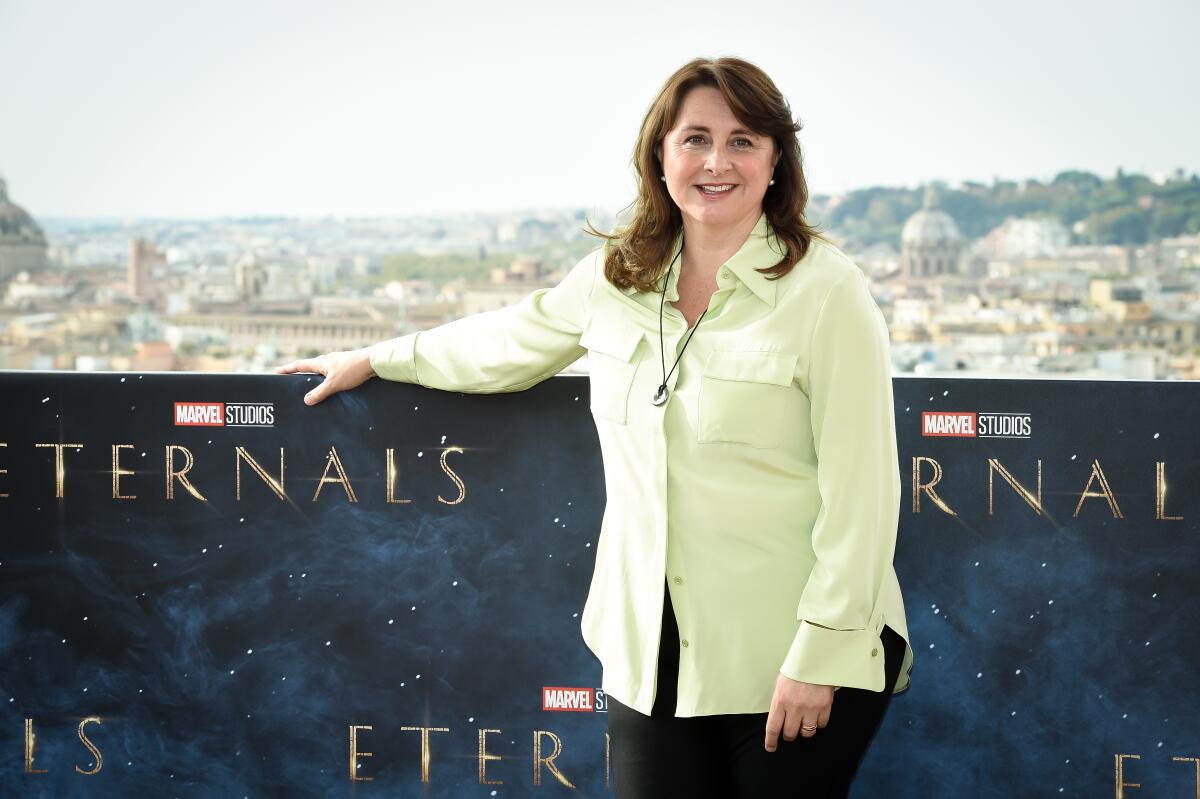Marvel producer Victoria Alonso leaves Disney superhero studio

Longtime Marvel Studios executive Victoria Alonso has left the Walt Disney Co.-owned superhero film juggernaut, a rare example of high-level turnover at one of Hollywood’s most successful operations.
A Disney spokesperson confirmed that Alonso is no longer with Marvel but did not give any reason for her departure.
Alonso had been with Marvel since 2006, joining as the company’s executive vice president of visual effects and post production.
She served as co-producer on the first “Iron Man,” followed by “Iron Man 2,” “Thor” and “Captain America: The First Avenger.” More recently, she was an executive producer on projects such as “Ant-Man and the Wasp: Quantumania,” “Black Panther: Wakanda Forever” and the Disney+ series “Loki.”
Higher, further, faster … and, finally, more diverse?
Marvel became successful because of its consistency in the superhero genre, but its track record has started to show cracks. The latest “Ant-Man and the Wasp” movie was hammered by critics, and the film suffered a steep drop-off at the U.S. box office after a strong debut.
The quality of Marvel’s VFX work — Alonso’s primary domain along with postproduction — and its treatment of artists have come under criticism within the industry in recent years.
Alonso was among Marvel chief Kevin Feige’s key deputies, alongside Nate Moore and Louis D’Esposito. Marvel is an essential anchor of Disney’s strategies in both theatrical film and streaming as the company tries to keep attracting subscribers while getting closer to profitability.
Buenos Aires-born Alonso moved to Los Angeles during the 1980s to get into the visual effects industry. She worked with James Cameron and Tim Burton before arriving at Marvel.
Alonso also produced “Argentina, 1985,” which was nominated for the Oscar for international feature this year.
— Times staffer Jevon Phillips contributed to this report.
More to Read
Inside the business of entertainment
The Wide Shot brings you news, analysis and insights on everything from streaming wars to production — and what it all means for the future.
You may occasionally receive promotional content from the Los Angeles Times.











